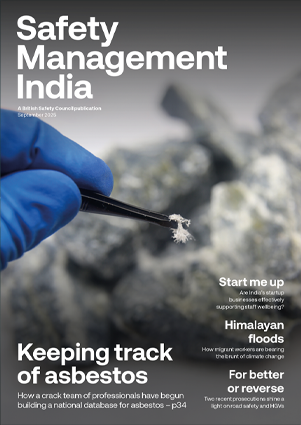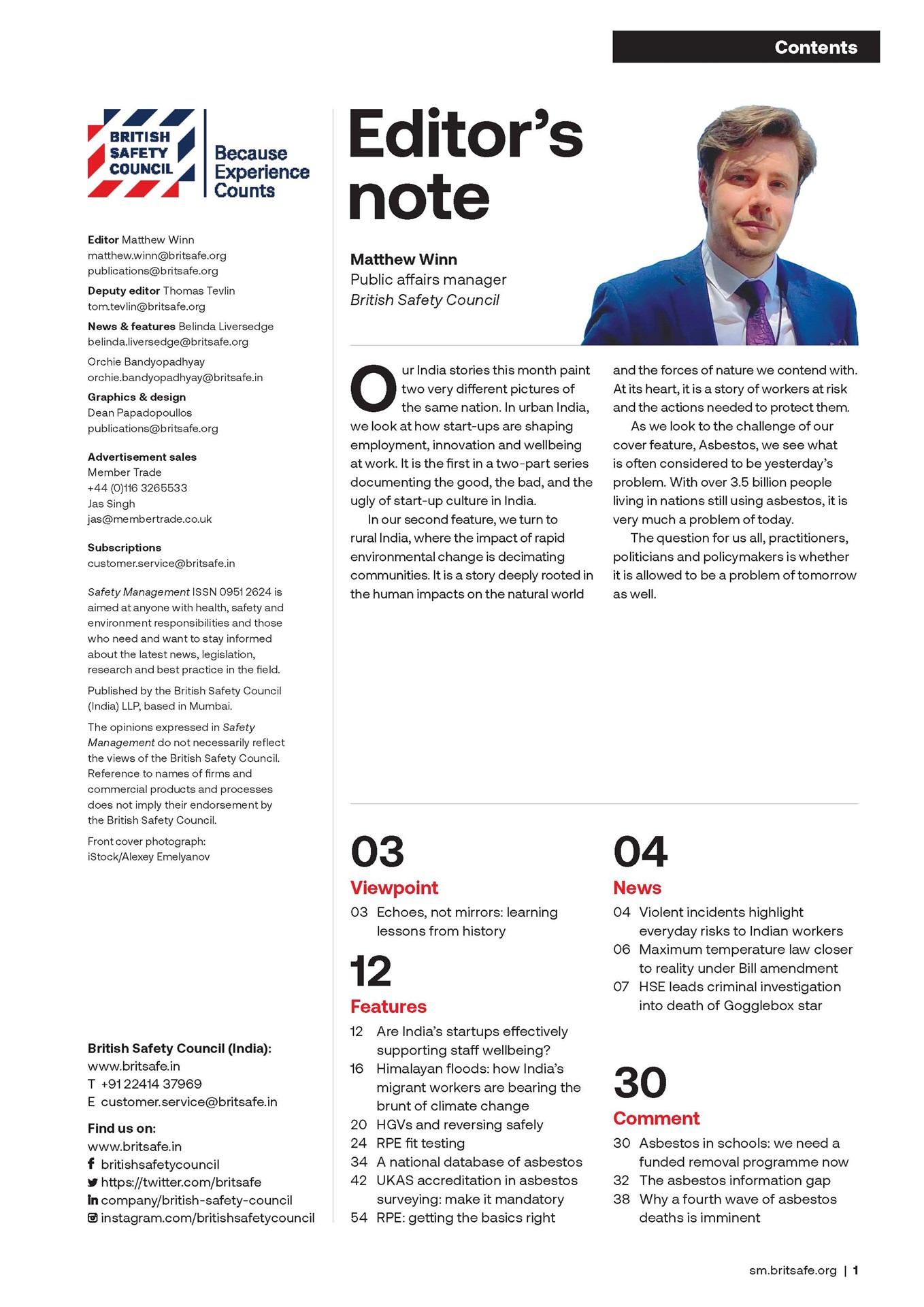False claims that migrant workers in Tamil Nadu are regularly being attacked and even killed by people supposedly angry at them depriving the locals of jobs have once again shone a spotlight on the precarious rights and conditions of migrant workers in India.
Features
Migrant workers: safety conditions in the spotlight again
In February, a video showing a man abusing and assaulting Hindi-speaking migrant workers on a moving train in Tamil Nadu went viral on social media and news websites. The man was seen pulling the men by the hair and punching them despite pleas to stop and accusing the migrant labourers of depriving the locals of Tamil Nadu of job opportunities.
In the same month, a 43-year-old construction worker from West Bengal was brutally assaulted by a group of people at Thazhambur in the southern state who suspecting him to be a thief. He died in hospital the next day. According to newspaper reports, the police said local residents mistook the man to be a burglar and, as he did not speak Tamil, they were unable to understand his explanation of innocence.
 Photograph: iStock credit ZvonimirAtleti
Photograph: iStock credit ZvonimirAtleti
An estimated 400 million people work in India’s unorganised sector, often in unsafe conditions and on low daily wages with no contracts, pensions, paid holidays or health benefits. The vast majority are migrant labourers, who are scattered all over the country and speak different languages. These migrants are generally not members of trade unions who could help them to secure better working conditions and social security rights.
According to a report from the Indian government’s Press Information Bureau, based on the 2011 census, there are more than 34.87 lakh migrant workers in Tamil Nadu, of whom 7.13 lakh are women. These workers play a critical role in all sectors of the economy – including agriculture, manufacturing and services.
Although the attitudes of local people in Tamil Nadu towards migrant workers in the state have never been positive, the situation has deteriorated in recent years. In fact, verbal and physical violence against migrant workers have reached considerable levels.
There have been reports of increased verbal abuse against Hindi-speaking migrants, especially Biharis. Commentators say that stigma and discrimination against migrant workers are not only unacceptable but dangerous, and can put migrant workers, their children and families at risk of violence and harassment. The issue further hit the headlines in early March after right wing activists were accused by Tamil Nadu police of posting fake videos online falsely showing migrant laborers from the state of Bihar being bullied and even murdered in the state of Tamil Nadu.
False claims
Thoothukudi Police registered a case against Bharatiya Janata Party (BJP) spokesperson K. Prashant Umrao for posting a tweet that falsely claimed on Twitter that migrant labourers from Bihar were being killed in Tamil Nadu, and that the state was not safe for them. The video created panic and fear among migrant workers in Tamil Nadu, and the tweet, which was posted on 2 March, had nearly 500,000 views.
However, in reality, there had been no such attacks on migrants on a daily basis in Tamil Nadu. According to the BJP’s political opponents, the misinformation campaign seemed to have two motives. First, attack Tejashwi Yadav, whose party, the Rashtriya Janata Dal (RJD), supported Nitish Kumar’s Janata Dal (United), allowing him to continue as Bihar’s chief minister after he ended his party’s alliance with the BJP in August 2022.
Second, put Tamil Nadu chief minister M.K. Stalin on the back foot as he is one of the main supporters of a Congress-led alliance presenting itself as an alternative to the Narendra Modi-led BJP in the 2024 Lok Sabha elections.
The Tamil Nadu Police were quick to act and about a dozen First Information Reports (FIRs) – documents prepared by police when they receive reports of allegedly serious crimes – were registered for people allegedly spreading misinformation about fatal assaults on migrant workers.
Responding to one of the fake videos in circulation, the state police said: “In this video, it has been incorrectly claimed that Hindi-speaking people from Bihar are being assaulted by Tamil-speaking people of Tamil Nadu.
“In fact, in Tamil Nadu, migrant workers from other States of India are safe and secure. The district and State administration are already abreast with such misleading social media posts, videos and newspaper reports and taking necessary remedial measures. Besides, they have also given helpline numbers for the migrant workers to sort out any issues faced by them.”
Tamil Nadu government reassures migrants of their safety
Tamil Nadu’s chief minister, M.K. Stalin, also moved quickly to reassure migrant workers, saying: “Tamil Nadu government is committed to protecting migrant workers. You don’t need to fear. Those who spread rumours are against India’s integrity. I request media organisations, television channels and social media users to act responsibly and not publish or forward unverified claims.
“I have also spoken to Bihar chief minister Nitish Kumar and I have assured him that all migrants here help in Tamil Nadu’s development and we will not let anything untoward happen to them.”
The Bihar government also acted quickly, in tandem with the Tamil Nadu government. A team from Bihar came to Tamil Nadu to meet local superintendents of police, district collectors and senior government officials and interacted with migrant workers, promising them they would be kept safe.
The secretary of Bihar government’s rural development department, D Balamurugan, said his team had held talks with officials, trade unions, business people and farmers about an alleged attack on migrant labourers from Bihar in Tiruppur in Tamil Nadu.
After the talks and detailed discussions, the team concluded that false videos of alleged incidents in Coimbatore and Jodhpur were circulated on social media platforms by vested interests hoping to suggest that migrant workers from Bihar were in danger in Tamil Nadu, and the non-BJP coalition government of Bihar was unresponsive to their plight. “This created needless confusion among natives of workers who are working here, and they started to feel insecure,” Balamurugan said.
![]() Photograph: iStock credit pixelfusion3d
Photograph: iStock credit pixelfusion3d
Tiruppur, also known as the dollar city for its thousands of export-oriented textile manufacturing units, has a large workforce of migrant labourers from Bihar, Uttar Pradesh and Jharkhand. It is estimated that the city’s textile industry employs over over 100,000 labourers from Bihar alone.
Madhav Yadav, a migrant worker from Bihar, working in Tiruppur, said: “One of the most frequent charges levelled against us [migrant workers] is that they accept work for lower wages and lead to the disintegration of benefits and working conditions of the domestic workforce.”
Chandan Kumar, coordinator for the Working People’s Coalition, based in Mumbai, believes migrant workers are powerless in the face of exploitation, and, when they go to another state, they are disadvantaged as don’t speak the local language. No one inspects the premises where they are employed to check if the working conditions are safe and details of their presence in the state and their working conditions are not recorded by the local state government.
Lack of health and social security benefits
Kumar adds that most migrants work in the informal sector, and have no health or social security benefits or entitlements. Another activist added that the wages of migrant workers are not standardised and they are not always paid the salaries due to them.
“Lack of affordable housing means they are forced to live in slums, while the lack of portability of state-specific benefits into another state renders them further vulnerable,” said one activist.
Growing in numbers, migrants are now the mainstay of the hosiery, hospitality, logistics and manufacturing sector in Tamil Nadu. Following the fake rumours about assaults on migrant workers, the state government and industry associations teamed up to provide dormitory-like accommodation for many migrant workers in Tirupur, Chennai and Sriperumbudur.
Most state governments and political parties are keen to be seen to be helping and supporting migrant workers as they value their contribution to the economy. As part of this, Tamil Nadu recently clarified that migrant workers holding an Aadhaar card (the national identification card) will be entitled to vote in state elections and have the right to redcued price food and other essential items, like fuel, through the Public Distribution Scheme (PDS).
Tamil Nadu announces support schemes for migrants
As the row over the alleged attacks on migrants continues, the Dravida Munnetra Kazhagam (DMK)-led state government in Tamil Nadu announced several support schemes for them in its recent Budget.
The state government announced that migrant workers would be included in the ‘Makkalai Thedi Maruthuvam’ (medical help for people) scheme, which provides free ‘doorstop’ medical help and medicines for poor people with non-communicable diseases like high blood pressure and diabetes. This will cover 711 factories, including 8.35 lakh workers in the first phase.
Tamil Nadu’s finance minister Palanivel Thiaga Rajan, also assured migrant workers that they would be safe while working and living in the state. “Eleven cases have been filed [against people posting fake online claims about violence against migrants in the state],” he said. “And 4 lakh workers were personally visited by a team to counter the fake videos.”
“Migration could be a big game changer and a win-win situation for individuals, families, states (both sending and receiving) and the nation if collaborative planning is done by migration origin and destination states with the facilitation of the authorities,” noted Devender Singh, who worked with the United Nations Population Fund (UNFPA) from 2015-2021, and is currently a visiting senior fellow with the Impact and Policy Research Institute (IMPRI), Delhi; and Debasish Chowdhury, who is with Medicine Sans Frontiers (MSF).



